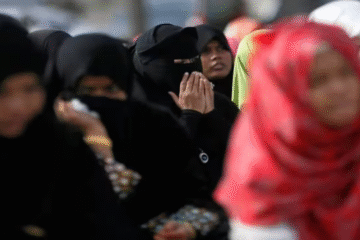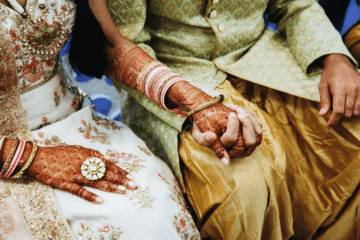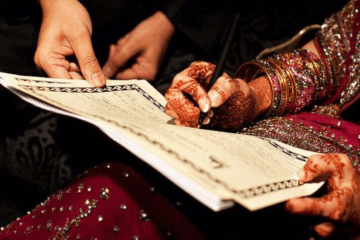
This article is written by Ashwitha.T of 4th Semester of ICFAI Law School, Hyderabad
ABSTRACT
Despite the fact that both Sunni and Shia rules of inheritance get their inspiration from passages in the Quran, they differ in terms of both their fundamental makeup and their specific ramifications. Because Sunnis make up the majority in Pakistan, their inheritance law is often regarded favourably by solicitors and law students, in contrast to Shia law, which does not have the same advantages. The purpose of the paper is to clearly explain the key elements of Shia inheritance law so that they will be understandable to those who are unfamiliar with the subject yet want to learn more. The text makes no attempt to thoroughly explain Sunni law of inheritance and instead assumes that the reader is already familiar with it. It contrasts the key aspects of Shia law with related aspects of Sunni law while outlining their key characteristics. The research demonstrates how these characteristics play a key role in granting legal heirs under Shia and Sunni inheritance schemes varying portions. The area that is shared by the two legally distinct traditions of inheritance in Islam is further discussed.
Keywords: Sunni law, Shia Law, inheritance, Islamic law
Introduction
While Goa is the only state in India with a uniform civil code, we are aware that we live in a constitutionally-based civilised society. In India, every religion that is practised is controlled by its own set of personal rules. The inheritance laws of Islam combine pre-Islamic norms with those imposed by the Prophet.
The four main sources of Islamic law from which the “Muslim Law of Inheritance” draws its concepts are as follows. They are listed below:
- The Holy Quran
- The Sunna (it is the practice of the prophet)
- The Ijmaa (it is the consensus of the learned men of the community on what should be the decision over a particular subject matter)
- The Qiyas (it is the deduction based on analogy on what is right and just in accordance with God)
Inheritance refers to the passing of property and any other transferrable rights from the deceased to the living. Islam gives inheritance a new significance. Although the Quran does not provide a specific concept of inheritance, numerous scholars have provided their own. Sir Abdur Rahim defined inheritance as the transfer of a person’s rights and duties to his or her heirs. The laws governing inheritance under Muslim law in India are based on the type of property in question. For instance, the Muslim Personal Law (Shariat) Application Act, 1937, shall apply in cases of non-testamentary succession. Alternatively, in the event of testamentary succession (which implies the individual made a will before passing away), in this circumstance, the Muslim law of Shariat applies for the inheritance of the deceased’s property, and is equally applicable to Shia and Sunni. The Indian Succession Act, 1925, shall apply to Muslims in situations where the subject of the property is an immovable property particularly located in the state of West Bengal or property coming under the jurisdiction of the Madras and Bombay HC. Only testamentary succession is covered by this exemption[1].
Who is a Mahomedan:
A Mahomedan is someone who practises the Mahomedan faith, that is, someone who affirms that (1) there is only one God and (2) Mahomed is his Prophet. A person of this type may be a Mahomedan by birth or via conversion. He does not have to adhere to any specific rituals or ceremonies or be an orthodox follower of the faith. A court can examine or evaluate a religious belief’s authenticity. He just has to claim to follow the Mahomedan faith in the sense that he acknowledges the oneness of God and Mahomed’s prophetic role[2].
Conversion to Mahomedanism and right of inheritance
The Mahomedan law governs the succession to a convert to Mahomedanism’s inheritance in the absence of a custom to the contrary. A Hindu cannot inherit a Mahomedan’s fortune, according to Mahomedan law. Therefore, if a Hindu who already has a Hindu wife and children converts to Mahomedanism and marries and has children with a Mahomedan woman, his property will transfer to his Mahomedan wife and children upon his death rather than to his Hindu wife or children[3].
Sunnis and Shias
The “Sunnis and the Shias” are the two main sects among the Mahomedans.
Sunni sub-sects
The Hanafi’s, Maliki’s, Shafeis, and Hanbalis are the four sub-sects that make up the Sunni religion. The Hanafi school is the primary one to which the Indian Sunni Mahomedans belong.
Shia sub-sects:
The AthnaAsharias, Ismailyas, and Zaidyas are the three primary sub-sects that make up the Shi’a community. Since the majority of Shias adhere to Athna-Asharia, it is assumed that Shias are controlled by this interpretation of the law.
Non-Testamentary and Testamentary succession under Muslim law
“The Muslim Personal Law (Shariat)” Application Act, 1937 is used in non-testamentary succession. On the other hand, when a person passes away testate, that is, before making a will, the inheritance is controlled by the appropriate Muslim Shariat Law that is applicable to both Shias and Sunnis.
“The Indian Succession Act, 1925” is applicable in circumstances where the subject of the ownership is an immovable property located in the states of West Bengal, Chennai, or Bombay. Only for the reason of testamentary succession does this exemption apply[4].
Devolution of inheritance:
The whole inheritance of a deceased Mahomedan, or the portion of it not distributed by Will, if he left a Will, passes to his heirs at the time of his death. This transfer is not halted by the fact that the deceased had unpaid obligations. In particular shares, the heirs succeed to the estate as tenants-in-common.
In contrast to Hindu Law, if a deceased Mahomedan died intestate, his estate passed to his heirs at the time of his passing. The Mahomedan Law does not respect birthright. The heir apparent or presumptive’s right does not become legally recognised until the ancestor’s death, and until that time, he is not entitled to any stake in the assets he would inherit if the ancestor had survived him. Mahomedan law does not recognise dual tenancies, hence the heirs are solely tenants-in-common. As a result, an heir can seek division of just one among the assets held in common rather than all the holdings[5].
The general principles associated with the Muslim Law of inheritance are as follows
- Nature of heritable property: Heritable property is defined as belongings that may be legally passed on to heirs. A Muslim’s assets are utilised to pay for burial costs, debts, and wills after his death. The property that remains after paying these costs is referred to as inherited property.
The Muslim Law does not distinguish between corporeal and incorporeal, or between moveable and immovable property, for the purposes of inheritance. Heritable property is any property that belonged to the deceased person at the time of his death[6].
- Joint or Ancestral property:
The notion of joint family or coparcenaries property is not recognised by Islamic inheritance law, in contrast to Hindu law. When a Muslim passes away, his or her assets pass to their heirs in a set share, with the heir taking sole ownership. Similar to this, the property possessed by such a legal heir will be distributed to his legal heirs upon his death, and this process continues. There is no provision for ancestral or joint-family property, unlike Hindu law. Additionally, there is no distinction between property that is self-acquired or inherited[7].
- Birthright under the Muslim Inheritance Law
Only when a Muslim die does inheritance become available. The fundamental tenet of Islamic law is that “nemo est haeres viventis,” or that no one may succeed to the estate of a live individual. It implies that the legal right to inherit property will only materialise at the passing of a decedent and not with the birth of a child[8].
- Doctrine of Representation
The Roman, English, and Hindu rules of inheritance all acknowledge this doctrine as a well-known philosophical premise. The son of a predeceased son represents his father for the purposes of inheritance in accordance with the concept of representation. This Doctrine is not recognised by Islamic inheritance law. Because in accordance with Islamic rule, the closer ones will be excluded from the farther ones[9].
- Rights of Females
The Islamic law of inheritance accords equal rights to males and women. Nothing can prevent a female kid from inheriting a piece of property legally once an ancestor passes away. The quantum of a female heir’s share is often determined to be half that of a male heir. This is necessary because, according to Islamic law, a woman must receive Mehr and maintenance from her husband at the marriage ceremony. Males are responsible for supporting their wives and children, whereas females merely get the inheritance of the ancestors’ property[10].
- Rights of a Widow
A Muslim widow who is childless is entitled to receive one-fourth of her late husband’s property under Shia law. The widow of a deceased spouse, however, is entitled to one-eighth of his property if she had children or grandchildren. The widow should not be entitled to any ownership over her deceased husband’s property in circumstances when a Muslim man marries while experiencing some mental illness and without consummating the marriage. However, if her sick husband divorces her and later passes away from the sickness, the widow will be entitled to a portion of her husband’s assets until she marries again.
- Rights of Inheritance of a child in womb
A kid in a mother’s womb at the time of a father’s passing is only eligible to inherit property under Muslim law if the infant is born alive. If the infant is born dead, the portion that belonged to him will cease to exist and be taken as though it never been[11].
- Right of Inheritance of the stepchildren
There is no right for the stepchildren to receive any inheritance from their stepparents. Similar to this, the stepchildren’s property cannot be inherited by the stepparents. However, the stepchild has the legal right to inherit from either his natural mother or father. The stepbrothers (or stepsisters) might also inherit one another’s possessions[12].
- Escheat
Italludes to the giving of the government the authority to seize estate assets or unclaimed property. When a Muslim passes away without leaving a will or any heirs, the government will get their possessions. The State is then regarded as the property’s legal successor in the end[13].
Classes of heirs
Three distinct categories of heirs are recognised under Islamic law. Those are:
Sharers: Who are entitled to a prescribed share of the inheritance
Residuaries: who don’t accept the prescribed portion but instead inherit the “remainder” once the shareholders’ claims are met.
Distant Kindred: Those relations by blood who are neither sharers nor
Residuaries
Sharers:
The Sharers are 12 in number and are as follows:
(1) Husband,
(2) Wife,
(3) Daughter,
(4) Daughter of a son (or son’s son or son’s son and so on),
(5) Father,
(6) Paternal Grandfather,
(7) Mother,
(8) Grandmother on the male line,
(9) Full sister
(10) Consanguine sister
(11) Uterine sister, and
(12) Uterine brother
The heirs are split into two categories under Shia inheritance law, notably
(i) Heirs by consanguinity i.e., blood relations and (ii) Heirs by marriage i.e.
husband and wife. Heirs by consanguinity are divided into three classes and each class is
sub-divided into two sections. These classes are
(I). (i) Parents, (ii) Children and other lineal descendants how lowsoever.
(II). (i) Grandparents how high so ever (True as well as False), (ii) Bothers and
sisters and their descendants how low so ever.
(III). (i) Paternal and (ii) Maternal, uncles and aunts of the deceased and of his
parents and grandparents how high so ever and their descendants how low so ever. The first class of heirs disqualifies the second from inheriting, while the second class disqualifies the third. However, the two portions of each class heirs succeed together, with the closer degree in every part excluding the farther away.
Residuaries: –
The whole inheritance, or the residue, as the case may be, passes to Remainders in the order specified when there aren’t any Sharers or if there were Sharers but there remains a residual after fulfilling their claims.
I Descendants:
i. Son
ii. Son’s son
II Ascendants:
i. Father.
ii. True Grand father
III Descendants of father:
i. Full brother.
ii. Full sister.
iii. Consanguine brothers.
iv. Consanguine sister
v. Full brothers son
vi. Consanguine brother’s son
vii. Full brother’s son’s son
viii. Consanguine brother’s son’s son
IV Descendants of true Grandfather
i. Full paternal uncle
ii. Consanguine Paternal Uncle
iii. Full paternal uncle’s son
iv. Consanguine Paternal uncle’s son
v. Full paternal uncle’s son’s son
vi. Consanguine paternal uncle’s son’s son
vii. Full paternal uncle’s son’s son
viii. Consanguine paternal uncle’s son’s son
ix. Consanguine paternal uncle’s son’s son
x. Male descendants or more remote true grandfathers[14].
Distant Kindred: –
- If there are no share or residuaries, distant kindred receive a portion of the inheritance.
- If a husband or wife is the lone sharer and there are no relatives who fall under the category of residuaries, the couple will receive their entire share and the remaining assets will be distributed to Distant Kindred.
Distant Kindred are divided into four classes, namely,
- Descendants of the deceased, other than sharers and residuaries;
- In addition to sharers and residuaries, the dead person’s heirs
- children of parents who are neither sharer or residuaries
- descendants of ascendants, no matter how high, except from residuaries
- The ascendants succeed in precedence over the ascendants of the dead, the ascendants of those who died succeed in precedence over the heirs of the deceased, and the successors of the parents succeed in precedence over the descendants of the ascendants.
Shia Law
If there are many successors of the same class who are descended from various subdivisions, the division among them is determined by strip under Shia law. In other words, the amount of property that each of them inherits is dependent on the property that is available to the specific branch to which they belong. It is crucial to note that the Shia law embraces the notion of representation for the specific purpose of determining each heir’s portion. Furthermore, according to Shia law, this formula can be used to determine how much a pre-deceased aunt, pre-deceased sister, pre-deceased brother, or pre-deceased daughter’s descendants will get in share payments[15].
Conclusion
In conclusion, while both Sunni and Shia inheritance laws share the common foundation of Islamic principles, they diverge in terms of legal traditions, interpretations, and the specifics of distribution. The nuanced differences reflect the complexity of Islamic jurisprudence and the diverse ways in which these laws are practiced across various communities.
[1] General Principles of Inheritance Under Muslim Law available at :https://lawcorner.in/general-principles-of-inheritance-under-muslim-law/(last visited on 28th June,2023)
[2] ibid
[3] General Principles of Inheritance Under Muslim Law available at :https://lawcorner.in/general-principles-of-inheritance-under-muslim-law/(last visited on 28th June,2023)
[4] Ibid
[5] ibid
[6]General Principles of Inheritance Under Muslim Law available at :https://lawcorner.in/general-principles-of-inheritance-under-muslim-law/(last visited on 28th June,2023)
[7] ibid
[8] ibid
[9] ibid
[10] ibid
[11] General Principles of Inheritance Under Muslim Law available at :https://lawcorner.in/general-principles-of-inheritance-under-muslim-law/(last visited on 28th June,2023)
[12] ibid
[13] ibid
[14] Muslim law of Inheritance available at ,https://districts.ecourts.gov.in/sites/default/files/jcjponduru.pdf(last visited on 29th June,2023)
[15] Muslim law of Inheritance available at ,https://districts.ecourts.gov.in/sites/default/files/jcjponduru.pdf(last visited on 29th June,2023)




0 Comments